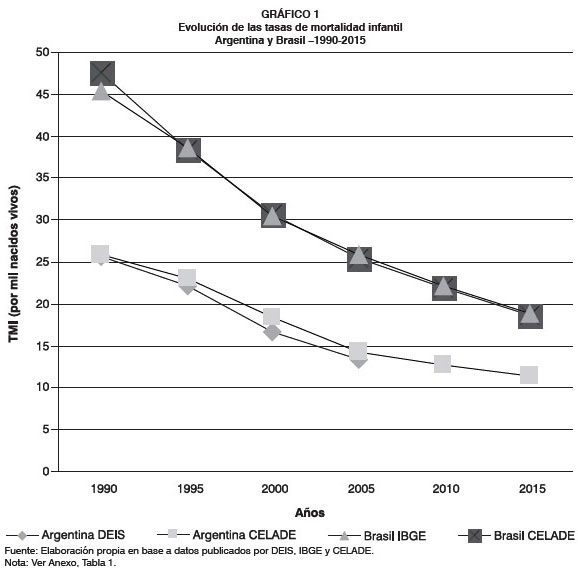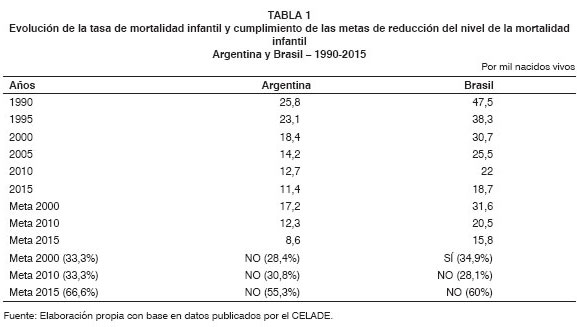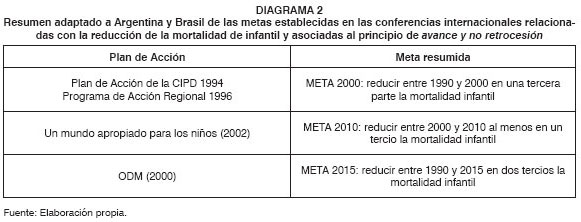The present article aims to investigate the progress reached in reducing infant mortality in Argentina and in Brazil, beginning in the 1990s, using human rights as the analytical approach. Based on this perspective, the authors emphasize some fundamental principles on which they are based and that are present in all the instruments: "Governments are the main duty barriers", "progress and non-retreat" and "equality and non-discrimination" to exercise rights. Therefore, in addition to seeking to reduce the general level of infant mortality- as is the aim of any development policy - the human rights perspective proposes a systematic advance in exercising rights that reach the entire population, in this way, making it a priority to reduce the existing gap among social strata. The article is based on data published by national statistics institutes and by the Centro Latino-Americano e Caribenho de Demografia - Latin American and Caribbean Demography Center (Celade - Cepal Population Division). Among the main results, the trends in infant mortality, in the countries studied, were observed to have had major reductions, which may be explained by applying the principle of "progress and non-retreat". However, the progress attained is insufficient to reach the objectives made at international conferences. More concerning is not following the principle "equality and non-discrimination". The limited information available allows the evaluation that, in some cases, the reduction in discrepancies among social strata is minimum, or even null.
Infant Mortality; Development; Human rights-based perspective










